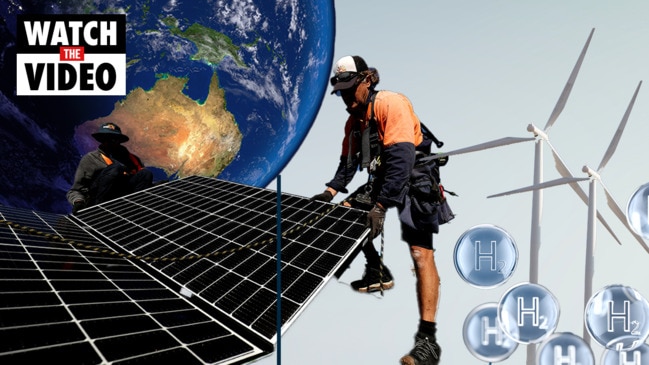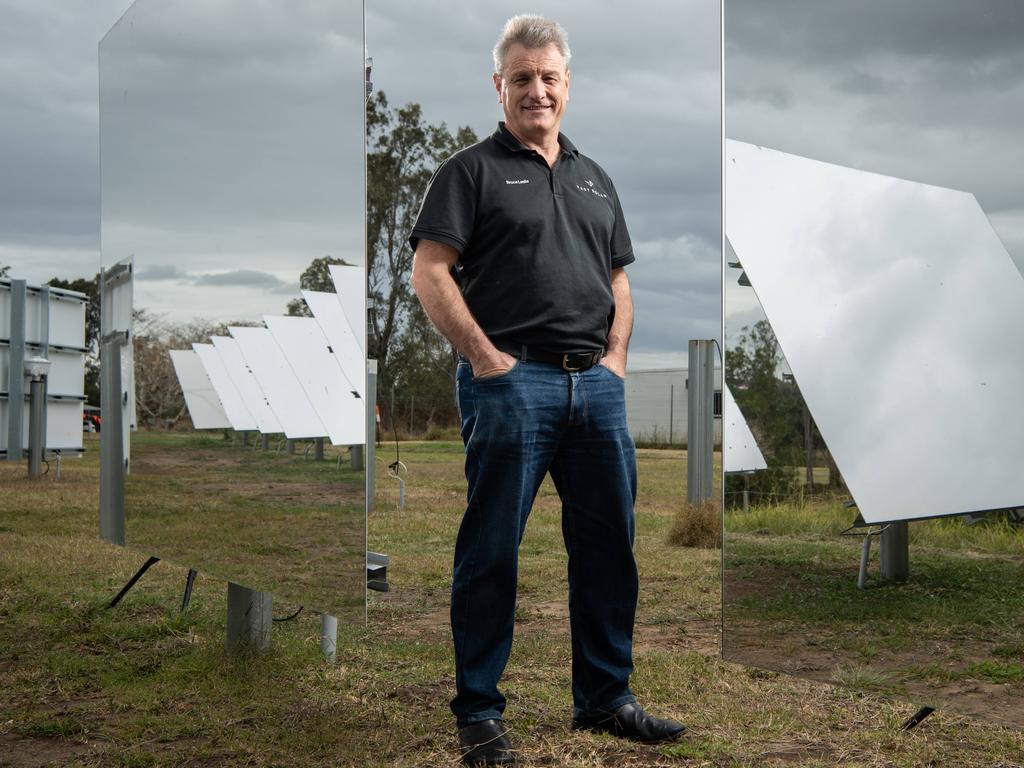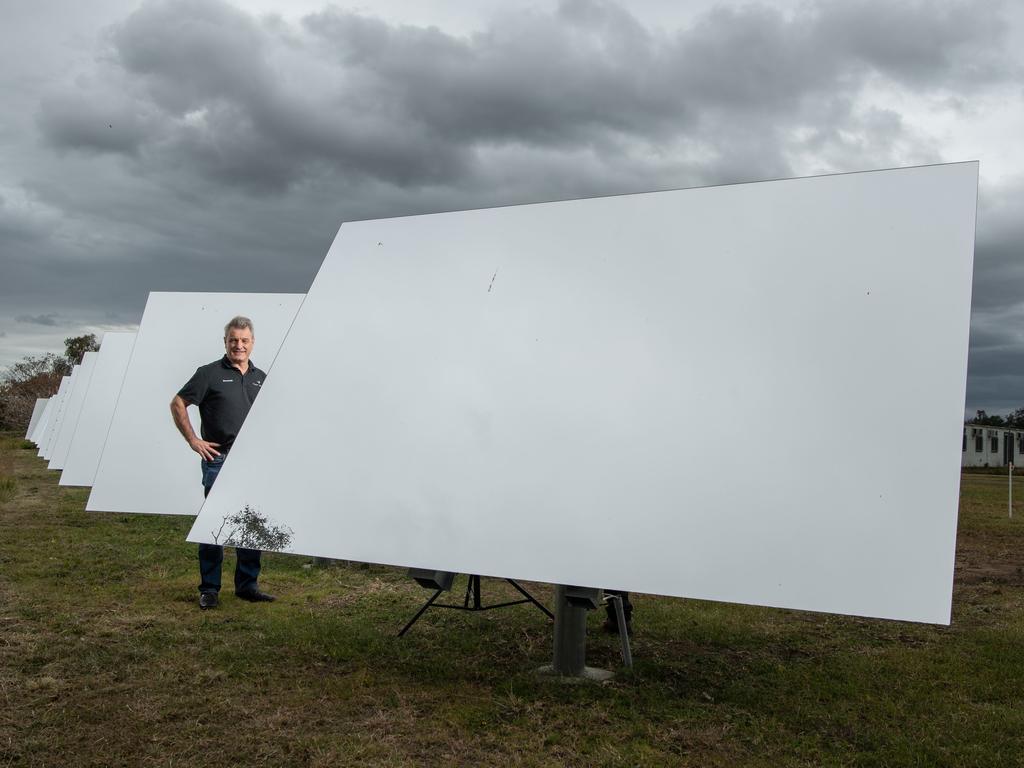‘Critical time’: Queensland manufacturing’s transition to net zero
Queensland’s manufacturing sector is on the ‘precipice of a critical time’ as it faces one of the biggest challenges in the transition to a net zero economy.

Manufacturing is on the “precipice of a critical time” as the sector faces one of the biggest challenges in the transition to a net zero economy, but heavy industry-led research say once the code is cracked it will “flow through to jobs and investment”.
The aluminium and alumina smelters in Gladstone are the sunshine state’s most well known manufacturing plants, employer thousands of people.
But there are industries throughout the state which will be impacted like cement producing in the southeast, which releases CO2 during its production, and even emerging industries like solar technology.
Vast Solar, which has operations in Goodna, has been developing solar thermal technology which uses mirrors to capture heat from the sun, store it in a thermal battery which is used to create steam to spin a turbine and generate electricity on demand including at night.
The company’s head of production Bruce Leslie, who had spent 32 years in the mining industry, said the technology had huge potential not only in generating a stable electricity for the power grid but also as a manufacturing and export industry for Australia.
“The climate is right now, no pun intended, for solar thermal,” he said.
Mr Leslie said while the mirrors had to be manufactured on site due to their fragility, there were key items like receivers and electronics which would be made for use locally and export “with Australian ingenuity”, including opportunities in Queensland.
“We see ourselves to be building a manufacturing facility over the next 18 months, to be able to ship receivers early mid-2023.”
Vast Solar is also developing a 50 megawatt hybrid solar thermal plant to power a Mt Isa mining operation expecting to operating in 2024.
“Don’t underestimate the power of cheap, renewable electricity … The potential to transition coal-based steel foundries overseas to green hydrogen steel foundries in Australia is huge,” Mr Leslie said.
Other changes are already being made by some of the biggest players in the industry in Queensland.
In late August Rio Tinto announced a partnership with Sumitomo Corporation to study the construction of a hydrogen pilot plant its Yarwun alumina refinery in Gladstone, describing it as “the beginning of a wave of international collaborations that will lead to new industries and new jobs”.
As more of Australia’s trading partners move towards net zero emission commitments, including Japan and Korea, there will be increased demand for ‘green’ products.
HILT CRC is a heavy industry low-carbon transition cooperative research centre.

Its research director Gus Nathan said all heavy industry would need to adapt and become carbon neutral, but it would be one of the more challenging sectors to make the change.
“These industries are bespoke, using different ores, different smelters. There’s no turn key solution that’s cost effective and reliable,” Prof Nathan said.
But he said that was changing as new technologies emerged and while the short-term costs will be more expensive, production would become cheaper in the long run.
“It will flow through to more investment and more jobs once we know how to do it best with the many opportunities that are out there,” Prof Nathan said.
“We’re confident all of these companies cannot only survive, but thrive in the new economy. But it will take investment in working it out to ensure it happens.”
Queensland Manufacturing Institute executive director Shay Chalmers said the transition to net zero would impact all aspects of the supply chain, but there would also be significant opportunities.

“We are on the precipice of a critical time for our sector – how we manage the manufacturing sector‘s transition to carbon neutral is paramount to our future industry growth,” Ms Chalmers said.
“Carbon neutrality for manufacturing is not just about reducing emissions in the manufacturing process. We need to expand our thinking to look more broadly for carbon reduction opportunities – from transport of raw materials through to re-manufacturing at end of product life.”
She said there were already opportunities locally emerging from technology needed as part of a carbon neutral economy, including the design and manufacture of new carbon capture devices, as well as battery and electrolysers being designed to be made closer to the customer to reduce transport costs as well as to be reused at the end of their life.
“These types of products, made in Australia, are going to be essential to our lower emissions economy,” she said.
Australian Aluminium Council executive director Marghanita Johnson said with the technology needed for heavy industry to transition still emerging it was hard to say what impacts it would have on jobs.
But she said it was clear there would be continued need for work in “mining, refining, smelting and extrusion”.
More Coverage
“Because we have that backbone of industry and manufacturing here we’re seeing the evolution of new world industries. It’s really important to strengthen Australia’s manufacturing capacity,” she said.
“It’s really hard to put a time on it.
“There are things happening now that five years ago I wouldn’t have said were possible.”






